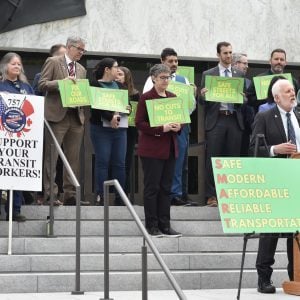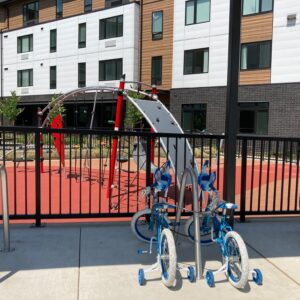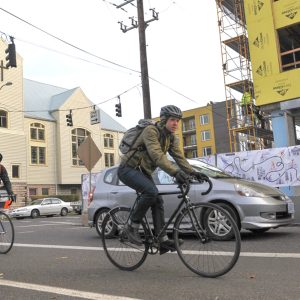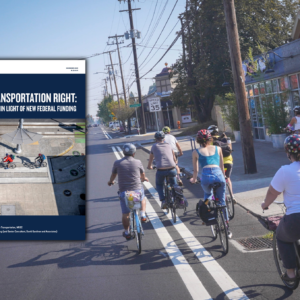
Here’s a bit of news that a lot of Portlanders have been waiting years to hear: a new group has launched to speak for the interests of business in Portland.
Or, in the words of one of its steering committee members, Metafilter publisher Matt Haughey: “There’s a business group that will fully support bike lanes and not complain about parking.”
The list of participants includes many from the city’s tech startup world, led by Switchboard CEO Mara Zepeda. Here’s what Zepeda writes in her introduction to the Portland Independent Chamber of Commerce:
PICOC (pronounced “peacock”) is a group of civically minded founders, investors, and community leaders who believe that by drawing attention to important issues, and providing a clear call to action, we can make a difference in shaping the future of our city.
We are not disruptors of civil society. We are stewards.
For the next ten months we will draw attention to issues that impact the future of our city, issues like affordable housing, sustainable transportation, inclusive and diverse employment opportunities, homelessness, and education. Our guest authors will explain why each issue matters and offer a concrete call to action that can be met within a single month. Sometimes it might be funding scholarships or a campaign. Other times it might be showing up at a meeting, or signing a petition. Whatever the issue, we’ll raise it with potential solutions on offer.
Advertisement
The steering committee is heavy on people associated with newer (but respected) startups and doesn’t include reps from the local tech scene’s biggest businesses. But some have signed on as supporters, including the CEOs of Puppet Labs, Simple and Treehouse.
Many BikePortland readers will also recognize one of the names on the steering committee: William Henderson of bike-data startup Ride Report. Haughey, the Metafilter founder, also started the the Buy Local Cycling Team and has organized several cyclocross races.
As described by Zepeda, it’s not clear whether this is intended to be a 10-month project or not; it may depend on how much traction the group is able to get in the coming months. But in contrast to the Portland Business Alliance, a regional chamber of commerce that often seems to believe that fast-moving vehicles are the most important factor in a city’s economy, there would seem to be a lot of potential for a new voice. We’ll be among those watching with interest.
If you would like to show support, Zepeda’s post includes the group’s first call to action: an offer to email hellopicoc@gmail.com to support the effort, and also to join PICOC’s mailing list.
— Jonathan Maus, (503) 706-8804 – jonathan@bikeportland.org
BikePortland can’t survive without paid subscribers. Please sign up today.







Thanks for reading.
BikePortland has served this community with independent community journalism since 2005. We rely on subscriptions from readers like you to survive. Your financial support is vital in keeping this valuable resource alive and well.
Please subscribe today to strengthen and expand our work.
So I guess the Portland Business Alliance doesn’t speak for all businesses, huh? This is great news and I wish them luck!
Support for bicycling in any form is helpful, but * Business* support for bicycling is absolutely invaluable if you want to get stuff done, especially in the downtown. I hope they can be an effective countermeasure to the reactionary PBA. Good on ’em!
Portland desperately needs a progressive counterpoint to the PBA association. I also wish them luck.
Matt Haughey is for sure a force for good! My inclination is certainly to trust anything he’s behind.
Yea! Time to kick the PBA to the curb.
What does PBA mean anyway?…Parking Bonus Always or Parking Built Atopofus or Parking Belittling Alternativemodes
This is great – I just signed up.
I’ll be particularly interested to learn more about, and contribute to, sustainable transportation choices.
This is amazing. Portland is constrained by anachronisms like the PBA that continue to have power by putting all of their energy into maintaining the status quo. The progressive/ creative business community in Portland has not had a broad collective voice that is proportional to its contribution to the portland economy. Traditional large employers in the metro area would also do well to have a thoughtful business lobby group represent their interests. Especially, when a substantial percentage of their employees need affordable housing and a safe biking environment.